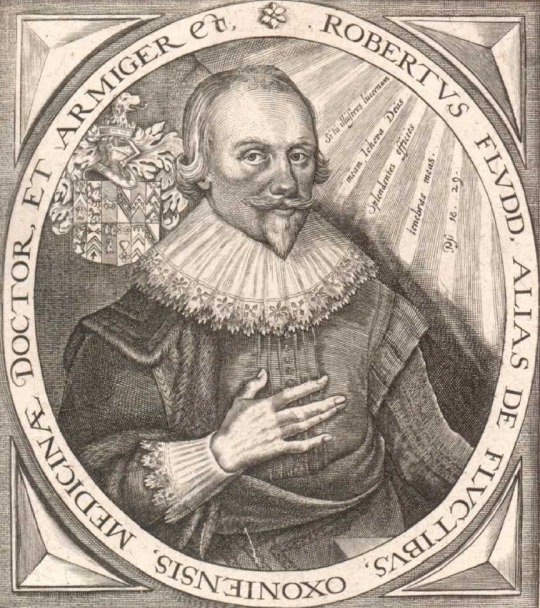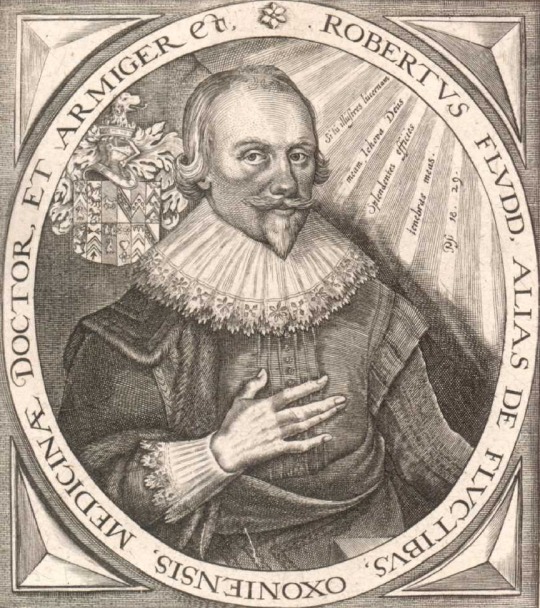#fluctibus
Photo

Just some details from a painting 👀 #fluctibus #contemporaryart #munich #acrylicpainting #love #abstractart #fluctibusart #falkvonschönfels #acrylicart #münchen #collage #artecontemporaneo #artcontemporain #arte #artwork #🦐 #👀 (at Munich, Germany) https://www.instagram.com/p/CnuG3JqqMMf/?igshid=NGJjMDIxMWI=
#fluctibus#contemporaryart#munich#acrylicpainting#love#abstractart#fluctibusart#falkvonschönfels#acrylicart#münchen#collage#artecontemporaneo#artcontemporain#arte#artwork#🦐#👀
3 notes
·
View notes
Photo




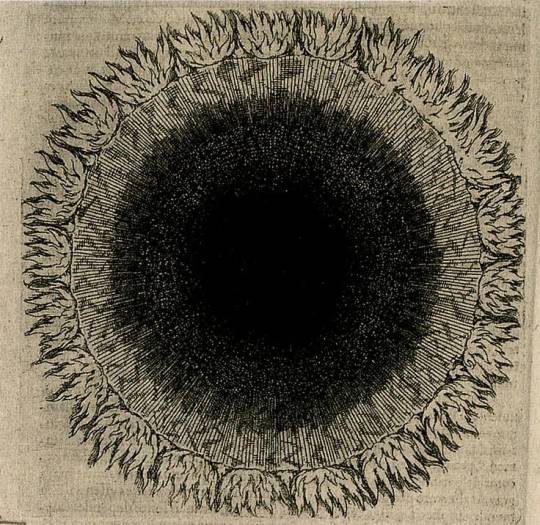
Robert Fludd (1554 - 1637), Utriusque Cosmi, 1619.
Robert Fludd, also known as Robertus de Fluctibus, was a prominent English Paracelsian physician with both scientific and occult interests. He is remembered as an astrologer, mathematician, cosmologist, Qabalist and Rosicrucian. Fludd is best known for his compilations in occult philosophy.
37 notes
·
View notes
Audio
Pierre Chépélov (*1979)
O qui perpetua mundum ratione gubernas (2012)
Eheu, quæ miseros tramite devios / abducit ignorantia! / non aurum in viridi quæritis arbore / nec vite gemmas carpitis, / non altis laqueos montibus abditis / ut pisce ditetis dapes / nec vobis capreas si libeat sequi / Tyrrhena captatis vada; / ipsos quin etiam fluctibus abditos / norunt recessus æquoris, / quæ gemmis niveis unda feracior / vel quæ rubentis purpuræ / nec non quæ tenero pisce vel asperis / præstent echinis litora. / sed quonam lateat quod cupiunt bonum / nescire cæci sustinent / et quod stelliferum transabiit polum / tellure demersi petunt. / Quid dignum stolidis mentibus imprecer? / opes honores ambiant, / et cum falsa gravi mole paraverint / tum vera cognoscant bona. //
O qui perpetua mundum ratione gubernas, / terrarum cælique sator, / qui tempus ab ævo / ire iubes stabilisque manens das cuncta moveri; / quem non externæ / pepulerunt fingere causæ / materiae fluitantis opus, verum insita summi / forma boni livore carens; tu cuncta superno / ducis ab exemplo, pulchrum pulcherrimus ipse / mundum mente gerens, similique in imagine formans, / perfectasque iubens perfectum absolvere partes. / Tu numeris elementa ligas, ut frigora flammis, arida conveniant liquidis, ne purior ignis / evolet aut mersas deducant pondera terras. / Tu triplicis mediam naturæ cuncta moventem / conectens animam per consona membra resolvis. / quæ cum secta duos motum glomeravit in orbes, / in semet reditura meat mentemque profundam / circuit et simili convertit imagine cælum. / Tu causis animas paribus vitasque minores / provehis et levibus sublimes curribus aptans / in cælum terramque seris, quas lege benigna / ad te conversas reduci facis igne reverti. / Da, Pater, augustam menti conscendere sedem, / da fontem lustrare boni, da luce reperta / in te conspicuos animi defigere visus. / Dissice terrenæ nebulas et pondera molis, / atque tuo splendore mica; tu namque serenum, / tu requies tranquilla piis, te cernere finis, / principium, vector, dux, semita, terminus idem. //
[Boethius. De Consolatione Philosophiae. III : M8, M9]
_
Music For A King, The Winchester Troper, 11th century. – Pierre Chépélov, Joel Rust, 21st century.
Discantus, Brigitte Lesne.
(2014, æon – AECD 1436 2014)
9 notes
·
View notes
Text
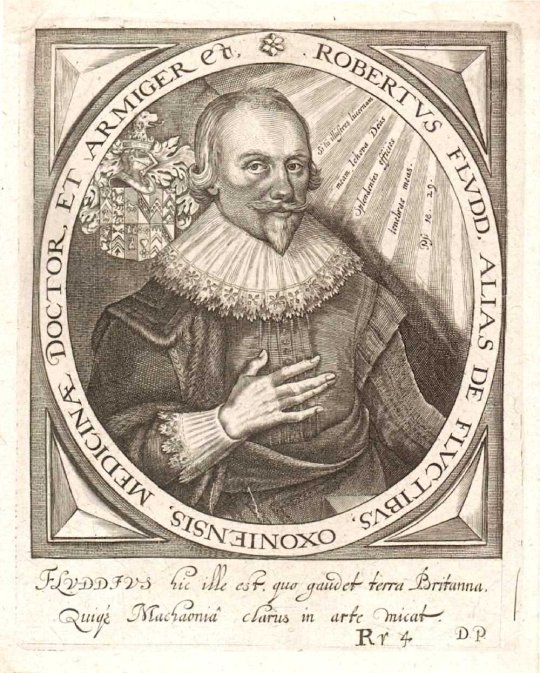
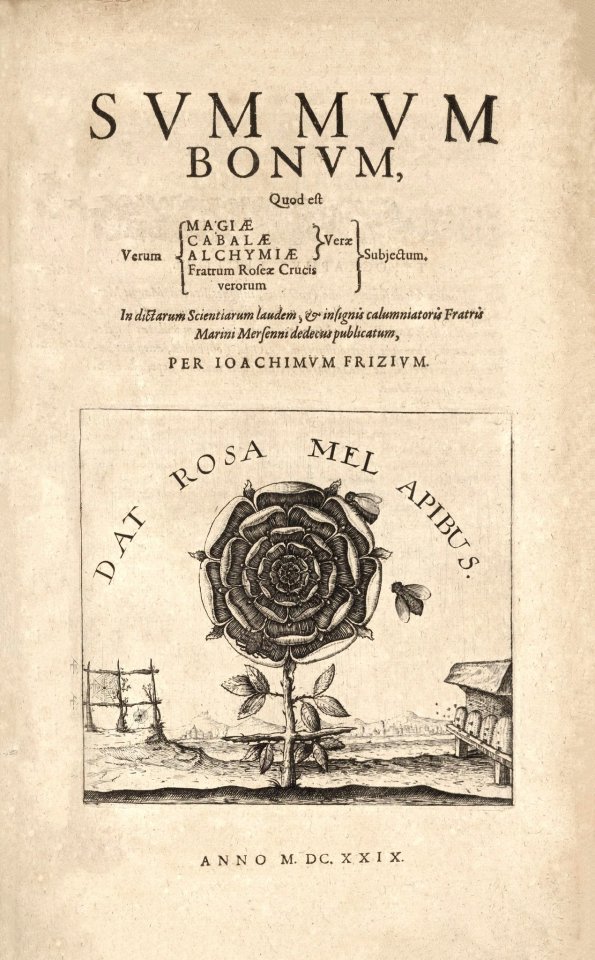
ROSICRUCIAN APOLOGISTS: ROBERT FLUDD
"The central figure of Rosicrucian literature, towering as an intellectual giant above the crowd of souffleurs, theosophists, and charlatanic professors of the magnum opus, who, directly or otherwise, were connected with the mysterious Brotherhood, is Robertus de Fluctibus, the great English mystical philosopher of the seventeenth century, a man of immense erudition, of exalted mind, and, to judge by his writings, of extreme personal sanctity.
Ennemoser describes him as one of the most distinguished disciples of Paracelsus, but refuses to number him with "those consecrated theosophists who draw all wisdom from the fountain of eternal light." He does not state his reasons for this depreciatory judgment, and the brief and inadequate notice which he gives of Fludd's system displays such a cursory acquaintance with the works in which it is developed, that it is doubtful whether he had taken pains to understand his author. I should rank the Kentish mystic second to none among the disciples of the "divine" Theophrastus, while in the profundity and extent of his learning, there can be no question that he far surpassed his master, who is said to have known little but to have divined almost everything, and who is, therefore, called divinus, in the narrower sense of that now much abused term."
"On the title-page of the "Summum Bonum," there is a large Rose on which two bees have alighted, with this motto above - Dat Rosa mel apibus. The book treats of the noble art of magic, the foundation and nature of the Cabala, the essence of veritable alchemy, and of the Causa Fratrum Roseæ Crucis. It identifies the palace or home of the Rosicrucians with the Scriptural house of wisdom. Ascendamus ad montem rationabilem, et ædificemus domum Sapientiæ. The foundation of the mountain thus referred to is declared to be the Lapis angularis, the corner-stone, cut out of the mountain without hands. This stone is Christ. It is the spiritual palace which the Rosicrucians desire to reveal, and is therefore no earthly or material abode.
There is a long disquisition on the significance of the Rose and the Cross, a purely spiritual interpretation being adopted. At the conclusion, the writer anticipates the question whether he himself is a brother of the Rose Cross, since he has settled all questions as to their religion and symbolism. His answer is that he least of any has deserved such a grace of God; if it have pleased God to have so ordained it, it is enough."
Text source: The Real History of the Rosicrucians, by Arthur Edward Waite, c. 1887
1) Pic. source: Portrait of Robert Fludd
2) Pic. source: Summum Bonum, c. 1629, by Robert Fludd
6 notes
·
View notes
Text
Eheu fugaces, Postume, Postume,
labuntur anni nec pietas moram
rugis et instanti senectae
adferet indomitaeque morti,
non, si trecenis quotquot eunt dies, 5
amice, places illacrimabilem
Plutona tauris, qui ter amplum
Geryonen Tityonque tristi
compescit unda, scilicet omnibus
quicumque terrae munere uescimur 10
enauiganda, siue reges
siue inopes erimus coloni.
frustra cruento Marte carebimus
fractisque rauci fluctibus Hadriae,
frustra per autumnos nocentem 15
corporibus metuemus Austrum:
uisendus ater flumine languido
Cocytos errans et Danai genus
infame damnatusque longi
Sisyphus Aeolides laboris. 20
linquenda tellus et domus et placens
uxor, neque harum quas colis arborum
te praeter inuisas cupressos
ulla breuem dominum sequetur;
absumet heres Caecuba degener 25
seruata centum clauibus et mero
tinguet pauimentum superbo,
pontificum potiore cenis.
1 note
·
View note
Text
Low cost Macro LED Lens Gentle - LED-60 by JJC
Low cost Macro LED Lens Gentle – LED-60 by JJC
Generally, we will not afford to pay £1k for a easy lens ring gentle – this one is available in at round £35. It is low-cost, it is nasty however it could properly do for primary video work!
BUY THE LIGHT: http://amzn.to/1CbuvHl
SOCIAL:
– Twitter: https://twitter.com/fluctibusfludd
– Fb: https://www.fb.com/Fluctibus.Fludd
–…
View On WordPress
#canon#female vlogging#fluctibus#fluctibus fludd#fludd#Gaming#production#scottish vlogger#TV#tv production#twitch stream...#vlogger#vlogging#youtube
1 note
·
View note
Photo

»Venus im Tesserakt« 2016 #fluctibus #fluctibusart #sketch #illustration #artist #digitalart #artwork #draw #sketchbook #artistsoninstagram #doodlesofinstagram #doodles #instaart #drawingg #doodleart #artoftheday #sketching #illustrator #anime #inktober #ink #drawings #design #procreate #cartoon #digitaldrawing #munich (at Munich, Germany) https://www.instagram.com/p/Cj0mJlgI43E/?igshid=NGJjMDIxMWI=
#fluctibus#fluctibusart#sketch#illustration#artist#digitalart#artwork#draw#sketchbook#artistsoninstagram#doodlesofinstagram#doodles#instaart#drawingg#doodleart#artoftheday#sketching#illustrator#anime#inktober#ink#drawings#design#procreate#cartoon#digitaldrawing#munich
4 notes
·
View notes
Text
To Dionysus, a Hymn, after Seneca the Younger
And now, with hands upraised, we sing of Thee, Lord of Revels
With many voices sweetly melded into one abounding joy
We see Thy face amongst the stars! We sing, Liberator, as long as they endure!
Or singly singing our private sorrows, we, who hold aloft
Within our hearts the burning thyrsus, call Thee
We see Thy face amongst the stars! We sing, Liberator, as long as they endure!
Who tames the wild and makes the mild leap forth
In madness, hear our song, sung to and of Thee
We see Thy face amongst the stars! We sing, Liberator, as long as they endure!
A song of youth, adventures yet undone, the yearning blush of spring,
Full and green, bearing unripe promise, Thine to guide us to the chorus
We see Thy face amongst the stars! We sing, Liberator, as long as they endure!
A song in the midst, weaving paean and threnody, bearing harvest
Baskets o’erflowing, mid-life’s fruit, sweet and bitter, Thy gifts renewing
We see Thy face amongst the stars! We sing, Liberator, as long as they endure!
A song ancient, wise, untroubled by change in key or phrase,
Even silent-throated Death shall join the chorus that we raise
We see Thy face amongst the stars! We sing, Liberator, as long as they endure!
While broad Ocean binds the shore, and sacred Moon renews her light,
As Morningstar dances with the Dawn, and Evenstar woos the Dusk,
Untiring Ursa - Sing Major! Sing Minor! - so shall our praise of Thee resound,
We see Thy face amongst the stars! We sing, Liberator, as long as they endure!
Lucida dum current annosi sidera mundi,
Oceanus clausum dum fluctibus ambiet orbem
Lunaque dimissos dum plena recolliget ignes,
dum matutinos praedicet Lucifer ortus
altaque caeruleum dum Nerea nesciet Arctos,
candida formonsi venerabimur ora Lyaei.
-Lucius Annaeus Seneca (the Younger), Oedipus 504-509
29 notes
·
View notes
Photo
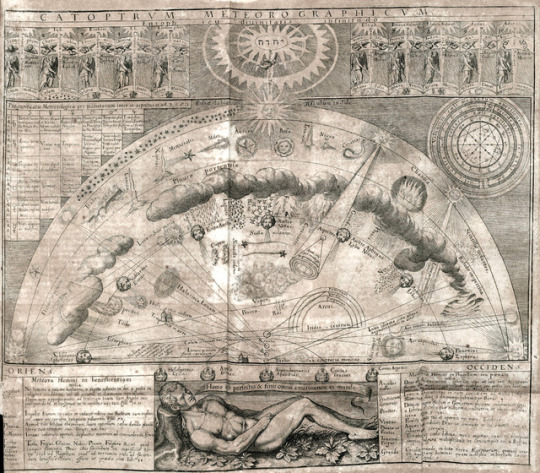
Robert Fludd (1574-1637), 'Catoptrum Meteorographicum', ''Philosophia Sacra & vere Christiana seu Meteorologia Cosmica'', 1626
Source
“Robert Fludd was a respected English physician (of Welsh origins) employed at the court of King James I of England. He was a prolific writer of vast, multi-volume encyclopaedias in which he discussed a universal range of topics from magical practices such as alchemy, astrology, kabbalism and fortune-telling, to radical theological thinking concerning the inter-relation of God with the natural and human worlds. However, he also proudly displayed his grasp of practical knowledge, such as mechanics, architecture, military fortifications, armaments, military manoeuvres, hydrology, musical theory and musical instruments, mathematics, geometry, optics and the art of drawing, as well as chemistry and medicine. Fludd used the common metaphor for the arts as being the “ape of Nature,” a microcosmic form of the manner in which the universe itself functioned.
Fludd’s most famous work is the History of the Two Worlds (Utriusque Cosmi … Historia, 1617-21) published in five volumes by Theodore de Bry in Oppenheim. The two worlds under discussion are those of the Microcosm of human life on earth and the Macrocosm of the universe (which included the spiritual realm of the Divine).”
‘Robert Fludd and His Images of The Divine’, from Public Domain Review
#robert fludd#catoptrum meteorographicum#philosophia sacra & vere christiana seu meteorologia cosmica#english physician#robertus de fluctibus#english artist#engraver#engravings#public domain review#utriusque cosmi#theodore de bry
47 notes
·
View notes
Photo
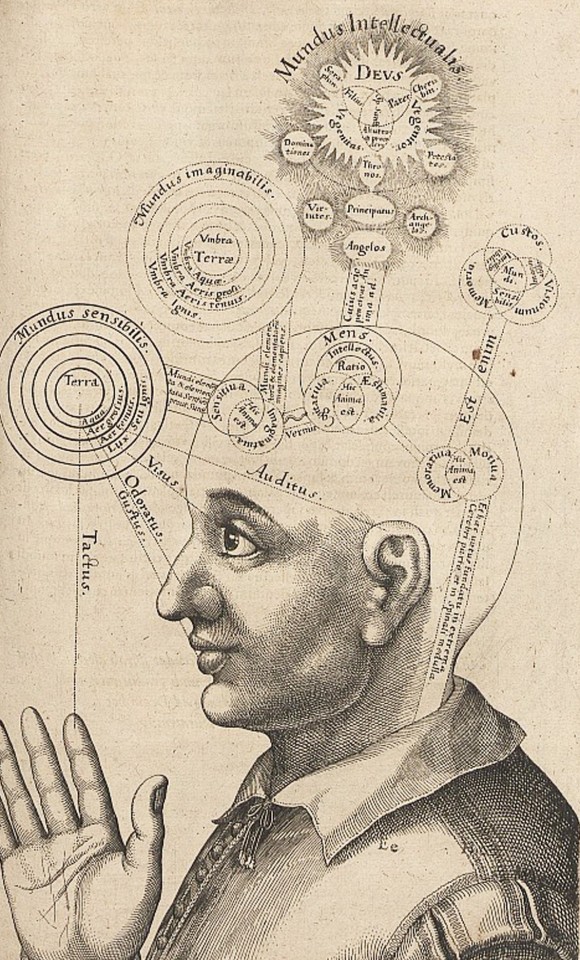
Robert Fludd (Robertus de Fluctibus 1574-1637) — Mundus Intellectualis (Utriusque Cosmi Maioris Scilicet Et Minoris Metaphysica, Physica Atque Technica Historia. Oppenheim, 1619)
146 notes
·
View notes
Text
catullus describing himself as merser fortunae fluctibus ipse in poem 68 vs describing ariadne as magnis curarum fluctuat undis in poem 64 – different approaches to similar concepts re: grief and the sea
#still thinking about catullus using the ocean to express grief#hmm.#the sea#grief and the sea#thoughts#catullus
23 notes
·
View notes
Video
'De ustriusque cosmi... historia', third sectio, second tractatus, second tomus by University of Glasgow Library
Via Flickr:
Frontispiece to the third sectio of the second tractatus of the second tomus of the DUCH (1623)
#University of Glasgow Library#Special Collections#Luca Guariento#Guariento#Robert Fludd#Fludd#Fluctibus#Robertus de Fluctibus#Utriusque cosmi historia#Medicina catholica#Hunterian associates
1 note
·
View note
Text
Balsamus & munda cera, cum chrismatis unda
Conficiunt agnum, quod munus do tibi magnum,
Fonte velut natum, per mystica sanctificatum:
Fulgura desursum depellit, & omne malignum,
Peccatum frangit, ut Christi sanguis, & angit,
Prægnans servatur, simul & partus liberatur,
Dona refert dignis, virtutem destruit ignis,
Portatus mundè de fluctibus eripit undæ:
Balme, virgine wax, and holie water, an Agnus Dei make:
A gift than which none can be greater, I send thee for to take.
From founteine eleere the same hath issue, in secret sanctifide:
Gainst lightning it hath soveraigne vertue, and thunder crackes beside.
Ech hainous sinne it weares and wasteth, even as Christs precious blood,
And women, whiles their travelllasteth, it saves, it is so good.
It doth bestow great gifts and graces, on such as well deserve:
And bome about in noisome places, from perill doth preserve.
The force of fire, whose heat destroieth, it breaks and bringeth downe:
And he or she that this enjoieth, no water shall them drowne.
0 notes
Text
On this Day | 8 December
In 65 BC, Q. Horatius Flaccus (Horace), the Roman Republican poet famous for his Odes, was born in Venosa, Italy.
Maecenas atavis edite regibus,
o et praesidium et dulce decus meum,
sunt quos curriculo pulverem Olympicum
collegisse iuvat metaque fervidis
evitata rotis palmaque nobilis
terrarum dominos evehit ad deos;
hunc, si mobilium turba Quiritium
certat tergeminis tollere honoribus;
illum, si proprio condidit horreo
quicquid de Libycis verritur areis.
Gaudentem patrios findere sarculo
agros Attalicis condicionibus
numquam demoveas, ut trabe Cypria
Myrtoum pavidus nauta secet mare.
Luctantem Icariis fluctibus Africum
mercator metuens otium et oppidi
laudat rura sui; mox reficit rates
quassas, indocilis pauperiem pati.
Est qui nec veteris pocula Massici
nec partem solido demere de die
spernit, nunc viridi membra sub arbuto
stratus, nunc ad aquae lene caput sacrae.
Multos castra iuvant et lituo tubae
permixtus sonitus bellaque matribus
detestata. Manet sub Iove frigido
venator tenerae coniugis inmemor,
seu visa est catulis cerva fidelibus,
seu rupit teretis Marsus aper plagas.
Me doctarum hederae praemia frontium
dis miscent superis, me gelidum nemus
Nympharumque leves cum Satyris chori
secernunt populo, si neque tibias
Euterpe cohibet nec Polyhymnia
Lesboum refugit tendere barbiton.
Quod si me lyricis vatibus inseres,
sublimi feriam sidera vertice.
Maecenas, born of monarch ancestors,
The shield at once and glory of my life!
There are who joy them in the Olympic strife
And love the dust they gather in the course;
The goal by hot wheels shunn’d, the famous prize,
Exalt them to the gods that rule mankind;
This joys, if rabbles fickle as the wind
Through triple grade of honours bid him rise,
That, if his granary has stored away
Of Libya’s thousand floors the yield entire;
The man who digs his field as did his sire,
With honest pride, no Attalus may sway
By proffer’d wealth to tempt Myrtoan seas,
The timorous captain of a Cyprian bark.
The winds that make Icarian billows dark
The merchant fears, and hugs the rural ease
Of his own village home; but soon, ashamed
Of penury, he refits his batter’d craft.
There is, who thinks no scorn of Massic draught,
Who robs the daylight of an hour unblamed,
Now stretch’d beneath the arbute on the sward,
Now by some gentle river’s sacred spring;
Some love the camp, the clarion’s joyous ring,
And battle, by the mother’s soul abhorr’d.
See, patient waiting in the clear keen air,
The hunter, thoughtless of his delicate bride,
Whether the trusty hounds a stag have eyed,
Or the fierce Marsian boar has burst the snare.
To me the artist’s meed, the ivy wreath
Is very heaven: me the sweet cool of woods,
Where Satyrs frolic with the Nymphs, secludes
From rabble rout, so but Euterpe’s breath
Fail not the flute, nor Polyhymnia fly
Averse from stringing new the Lesbian lyre.
O, write my name among that minstrel choir,
And my proud head shall strike upon the sky!
Horace, Odes 1.1. Translated by John Conington (1882).
#classics#tagamemnon#horace#on this day#poetry#latin poetry#latin literature#literature#classical literature#roman literature#ancient rome#rome#roman history#ancient history#history#translation
6 notes
·
View notes
